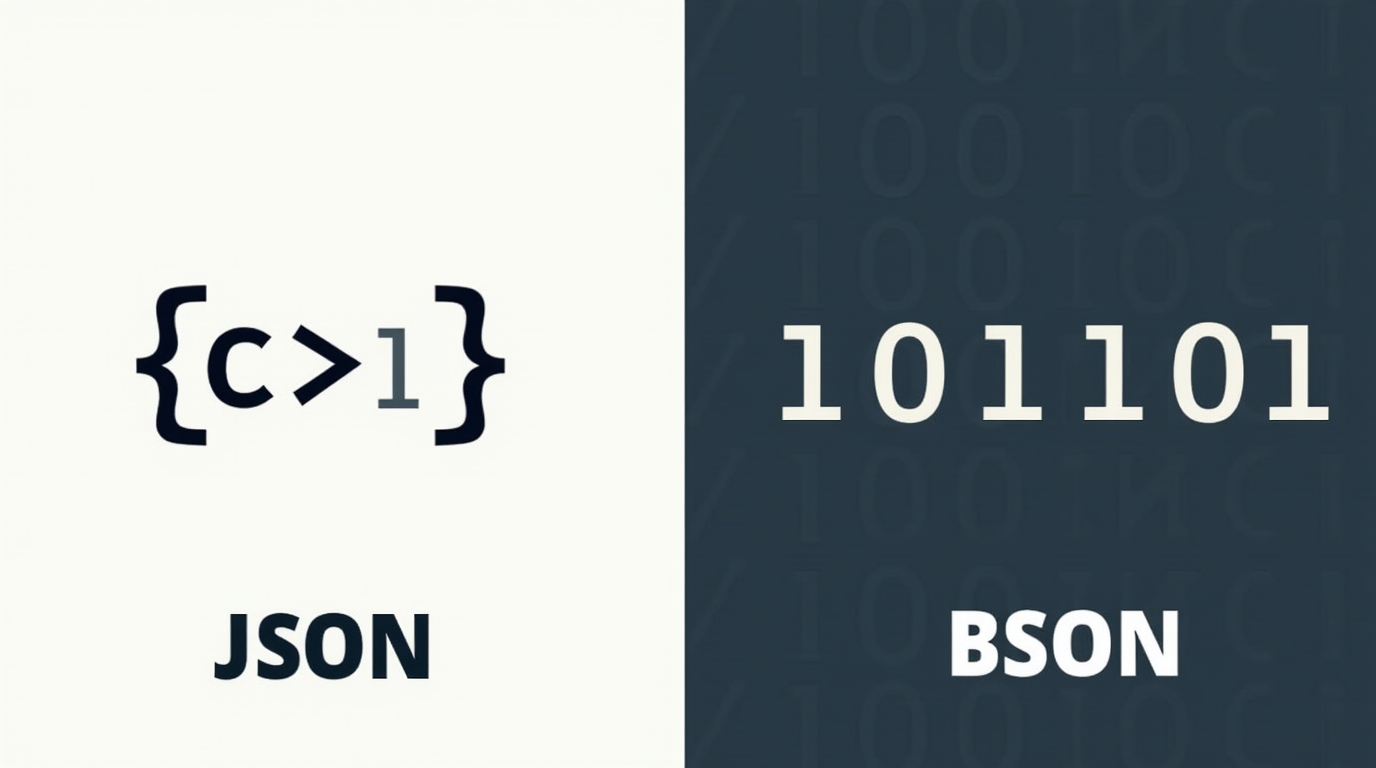1. JSON (JavaScript Object Notation)
Concept:
JSON is a lightweight, text-based data interchange format. It's easy for humans to read and write and easy for machines to parse and generate. JSON is based on a subset of the JavaScript language and is widely used in web applications, APIs, and configuration files.
Key Characteristics:
- Text-Based: Data is represented as text, making it human-readable.
- Simple Structure: Based on key-value pairs (objects) and ordered lists (arrays).
- Limited Data Types: Primarily supports strings, numbers, booleans, null, objects, and arrays.
- Universal Support: Supported by virtually all programming languages and platforms.
- Easy to Debug: Being text-based, it's straightforward to inspect and debug.
Pros:
- Human-Readable: Easy to understand and work with directly.
- Widely Supported: Excellent support across different technologies.
- Lightweight: Relatively small in size for simple data structures.
- Easy to Parse: Libraries for parsing JSON are readily available and efficient.
Cons:
- Less Efficient for Complex Data: Can become verbose for large or deeply nested data.
- Limited Data Types: Doesn't natively support binary data or specific date/time types, often requiring workarounds like Base64 encoding or string representations.
- Parsing Overhead for Large Documents: Parsing large text-based JSON documents can consume more resources than binary formats.
Use Cases:
- Web APIs for data transfer between client and server.
- Configuration files.
- Data exchange in web applications.
- Lightweight data storage.
2. BSON (Binary JSON)
Concept:
BSON is a binary-encoded serialization format. It is designed to be efficient in both space and parsing speed. BSON is the primary data format used in MongoDB and is also used in other systems requiring efficient binary data representation.
Key Characteristics:
- Binary Format: Data is stored in a binary format, making it less human-readable but more efficient for machines.
- Extensive Data Types: Supports a wider range of data types compared to JSON, including binary data, dates, timestamps, regular expressions, and more.
- Size Efficiency for Complex Data: Often more compact than JSON, especially for data with binary content or specialized types.
- Faster Parsing and Serialization: Binary formats generally offer faster parsing and serialization compared to text-based formats.
- Not as Universally Supported as JSON: Primarily used in systems that specifically support BSON.
Pros:
- Efficient for Binary Data: Handles binary data without the need for encoding overhead.
- Supports Richer Data Types: Can represent dates, timestamps, and other specialized types natively.
- Faster Parsing and Serialization: Binary format allows for quicker processing.
- More Compact for Complex Data: Can result in smaller file sizes for certain types of data.
Cons:
- Less Human-Readable: Binary format is not easily inspected or edited directly.
- Limited Universal Support: Not as widely supported as JSON outside of specific ecosystems.
- Overhead for Very Simple Data: For extremely simple data structures with basic types, the overhead of the BSON format might make it slightly larger than JSON.
Use Cases:
- Primary data format for MongoDB.
- High-performance data storage and retrieval.
- Applications dealing with binary data or specialized data types.
- Internal communication between services where efficiency is critical.
Head-to-Head Comparison Table:
| Feature | JSON (JavaScript Object Notation) | BSON (Binary JSON) |
|---|---|---|
| Format | Text-based | Binary-based |
| Readability | Human-readable | Not easily human-readable |
| Data Types | Limited (strings, numbers, booleans, null, objects, arrays) | Extensive (including binary, dates, timestamps, etc.) |
| Size Efficiency | Less efficient for complex data | More efficient for complex data |
| Parsing Speed | Generally slower for large data | Generally faster |
| Universal Support | Very High | Lower (primarily in specific ecosystems) |
| Binary Data Support | Requires encoding (e.g., Base64) | Native support |
| Primary Use Cases | Web APIs, configuration, data exchange | MongoDB, high-performance data storage |
Conclusion:
The choice between BSON and JSON depends on the specific requirements of your application. If human readability and broad compatibility are paramount, and you're primarily dealing with basic data types, JSON is often the preferred choice. However, if you need to handle binary data, require support for richer data types, or prioritize efficiency in terms of size and parsing speed, especially within systems that support it like MongoDB, then BSON might be the better option. Understanding these trade-offs will help you choose the most appropriate data format for your needs. Stay tuned for the next Daily Comparison!
